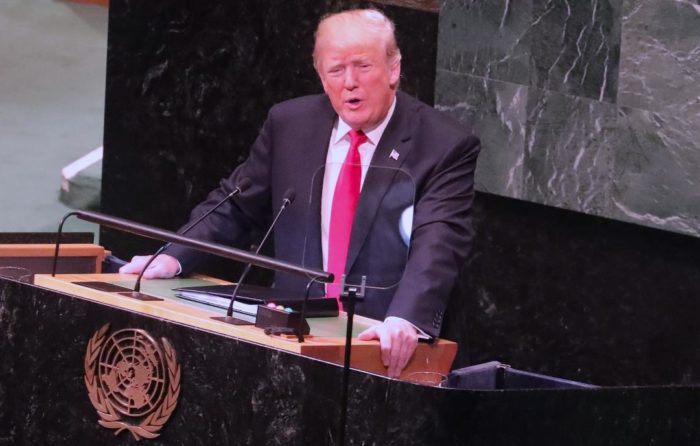
Repositioning Nigeria’s Economy in an Uncertain Global Market
By Umar Farouk Bala
The return of Donald Trump as President of the United States has reignited concerns about his aggressive trade policies and their global impact. His administration’s protectionist stance, marked by high tariffs on foreign goods, has sent shockwaves through the international market, forcing countries to reassess their economic strategies.
While major economies like China, the European Union, and Canada have retaliated against these measures, emerging economies like Nigeria must look inward and strengthen their domestic industries to mitigate potential economic fallout.
Trump’s trade policies, including the imposition of 25 percent tariffs on steel and aluminum, have provoked countermeasures from economic giants. Canada, the EU, and China have responded with their own tariffs on American products, escalating tensions into a full-fledged trade war.
European Commission President Ursula von der Leyen has warned that these tariffs could drive up prices and threaten jobs on both sides of the Atlantic. The ongoing disputes have also disrupted global markets, with stock indices witnessing steep declines.
The United States, with its $27.97 trillion GDP, may have the economic resilience to endure the short-term impacts of these trade wars. However, for Nigeria, a country heavily reliant on crude oil exports, the repercussions could be dire.
A global economic slowdown could depress oil prices, reducing the revenue Nigeria earns from its primary export commodity. This underscores the urgency for Nigeria to build a self-sustaining economy that can withstand external economic shocks.
Nigeria’s economy remains vulnerable due to its heavy dependence on imports. Key sectors, such as manufacturing and textiles, have suffered setbacks over the years due to inadequate government support, infrastructural decay, and an over-reliance on foreign goods.
The Ajaokuta Steel Complex, which could have been a game-changer for the nation’s industrial development, has remained moribund since 1979.
Likewise, the Nigerian textile industry, once a significant employer, has collapsed under the weight of cheaper imports, particularly from Asia, resulting in an annual import expenditure of $4 billion to $6 billion on textiles alone.
To remedy this, the Federal Government must take decisive action to revive these critical industries. This includes providing financial incentives for local manufacturers, implementing favorable policies that encourage industrial growth, and ensuring that businesses operate in an enabling environment.
One of the biggest impediments to industrial growth in Nigeria is the erratic power supply. The high cost of electricity contributes approximately 40 percent to production costs, forcing many companies to either shut down or relocate to countries with more business-friendly environments.
Addressing Nigeria’s electricity challenges is crucial for attracting and retaining manufacturers. Investing in renewable energy, expanding the national grid, and implementing effective policies to support independent power producers are necessary steps to improve power availability. Without reliable electricity, no meaningful industrialization can take place.
Nigeria must transition from being a consumption-driven economy to a production-oriented one. The key to achieving this lies in policies that prioritize local content, encourage entrepreneurship, and provide incentives for industries to manufacture goods locally.
Countries like China, Canada, and the EU have developed strong economies that allow them to push back against US tariffs. Nigeria must follow suit by building a robust industrial base that ensures economic self-sufficiency.
Trump’s trade war is said to serve as a reminder of the dangers of economic dependence. As global powers battle for trade supremacy, Nigeria must seize this moment to strengthen its domestic industries.
By fostering a manufacturing renaissance, revitalizing critical sectors, and investing in infrastructure, Nigeria can shield itself from external economic hostilities and chart a path toward sustainable economic growth.
Umar Farouk Bala is a serving corps member at PRNigeria Centre, Abuja. He can be reached at: [email protected].
